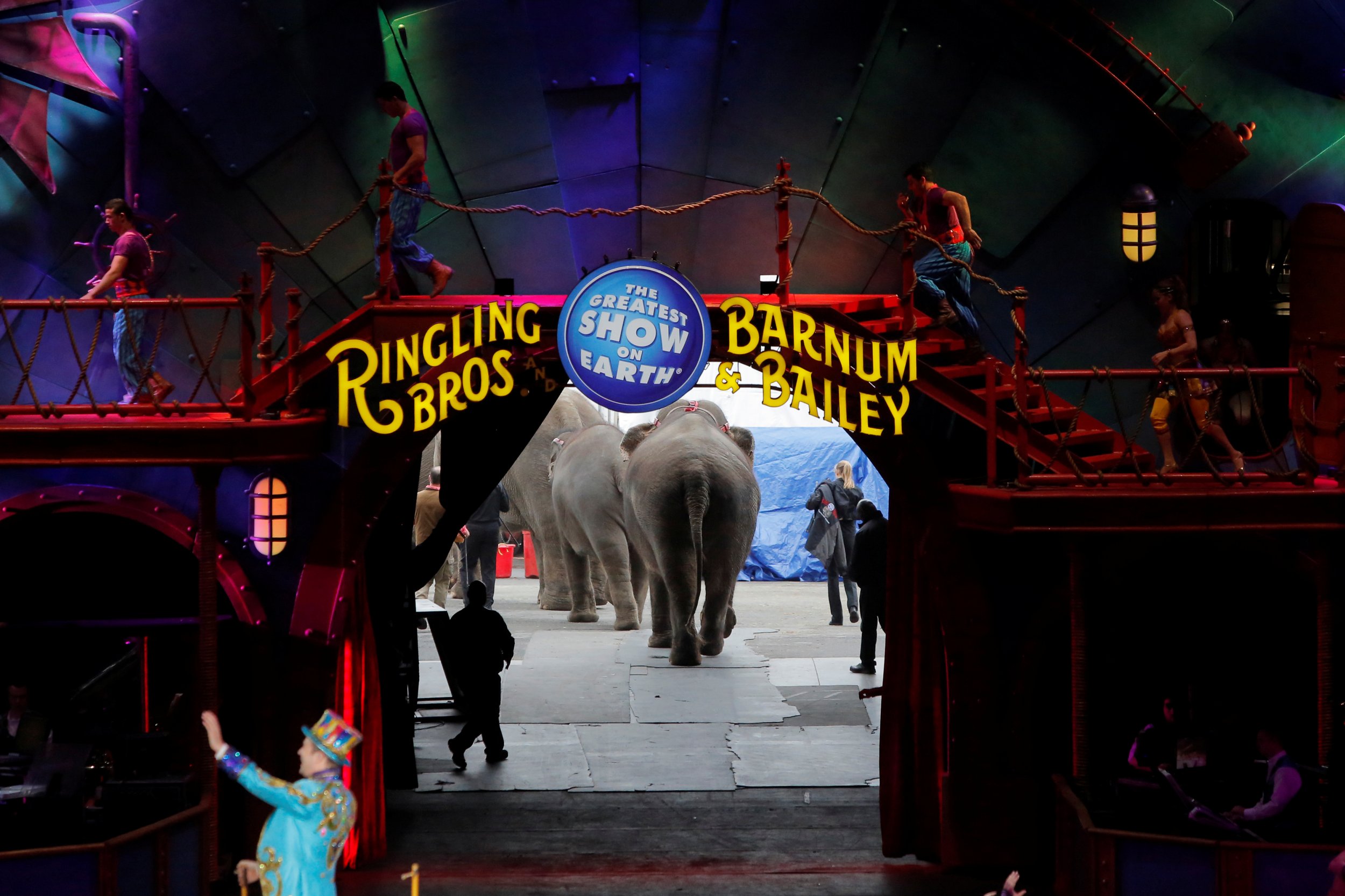
This article originally appeared on the Motley Fool.
There was a time when the circus coming to town represented a major event, and even though there were others, for many, "circus," meant the Ringling Bros. Barnum & Bailey version.
It was only a few years ago that the company would announce its arrival in major cities like New York or Baltimore with a parade of elephants through downtown on the way to whatever major arena the company would take over for weeks. The circus was such an event that major National Basketball Association and National Hockey League teams went on long road trips so their home arenas could host extended engagements of "The Greatest Show on Earth."
Now, of course, Feld Entertainment, the owner of the iconic brand, has announced that the Ringling Bros. circus will have its final performances now through May. It's the end of a nearly 150-year tradition, but it may not be the end of the art form, even though it's a stunning loss.
Why is Ringling closing?
Feld blamed the closing on a combination of rising costs coupled with declining attendance. Specifically, the circus' owner cited dropping elephants from the circus—something it did in response to activist pressure—as causing steeper-than-expected ticket sales declines.
"This was a difficult business decision to make," said Juliette Feld, Feld Entertainment's Chief Operating Officer in a press release. "Now that we have made this decision, as a company, and as a family, we will strive to support our circus performers and crew in making the transition to new opportunities," she added.
Joe Gold, principal of The Gold Group, a marketing company that also runs museums and exhibits across the country, laid out the challenging economics in an interview with The Motley Fool. "I don't have any inside knowledge," the one-time Feld vice president made clear regarding the actual shutdown, but having worked for the company and in the industry, Gold does have an insider's understanding of the economics.
"Their cost structure was extremely high," he told the Fool. "The circus travels on 60 railroad cars."
To put that into perspective, the former-circus executive explained that a rock-and-roll show travels with eight trucks, while the exhibits his company produces use 13 trucks at most, and even Disney On Ice uses only 11 or 12 trucks. "The equivalent of 60 railroad cars is 120 trucks," he explained.
Gold also noted that Feld had fought costly battles with animal rights activists in every city it operated in. "There's competition from a hundred different places for family entertainment and it's just, how do you make it go?" he added.
What remains of the circus business?
At roughly the same time the Ringling Bros. news was made public, an auction was announced for the assets of the bankrupt Big Apple Circus—a regional touring group that filed for bankruptcy in November. That brand, which Gold's company did marketing for in the 2000s, offered a smaller version of what Ringling Bros. did, often setting up a big top in a mall parking lot or other similar large, open space, and it hopes to bring back the circus at least to New York, The New York Post reported.
There are still a number of regional circuses performing with perhaps the best-known being UniverSoul Circus, which currently has two tours operating (as did Ringling Bros.). A UniverSoul representative declined to comment when contacted for this story.
Gold said that while the loss of Ringling Bros. was a blow to the industry, there are regional circuses and new takes on the art form that are thriving. He cited the success of Cirque du Soleil, a very different execution that can be considered in the circus tradition.
"It's a tremendous opportunity for smaller shows," said Gold. "Circuses are thriving. There's a company that's doing circuses in theaters that's doing great. There are smaller shows, one called Circus Symphony, that goes out for three, four weeks at a time. They do business."
So, rather than the end of Ringling Bros. being the end of an American tradition, Gold sees it as a time for something new to emerge. He explained that a successful show has to evolve, change with the times, and present something the public can't experience anywhere else.
"Cirque du Soleil came out of nowhere 30 years ago, and it was a different way of looking at circuses, a different way of touring it, because it wasn't on a train, it didn't have animals," he said. "I think there is a future for circuses. It just has to be done differently going forward."
10 stocks we like better than Apple
When investing geniuses David and Tom Gardner have a stock tip, it can pay to listen. After all, the newsletter they have run for over a decade, the Motley Fool Stock Advisor, has tripled the market. David and Tom just revealed what they believe are the 10 best stocks for investors to buy right now… and Apple wasn't one of them! That's right—they think these 10 stocks are even better buys. Click here to learn about these picks!
Uncommon Knowledge
Newsweek is committed to challenging conventional wisdom and finding connections in the search for common ground.
Newsweek is committed to challenging conventional wisdom and finding connections in the search for common ground.
About the writer
To read how Newsweek uses AI as a newsroom tool, Click here.








